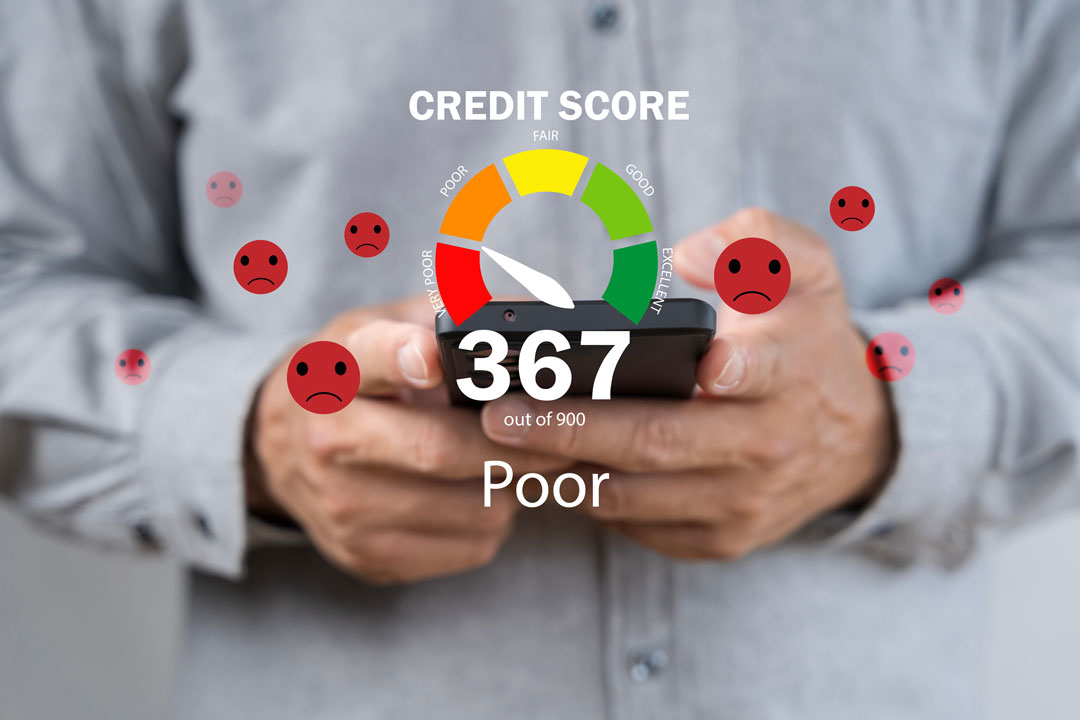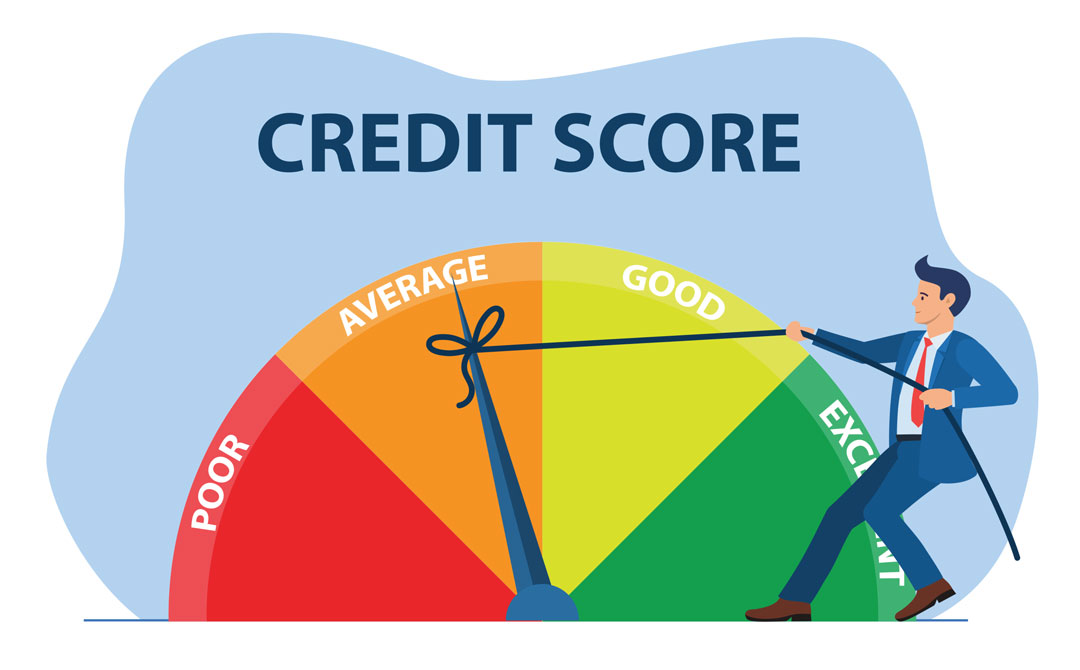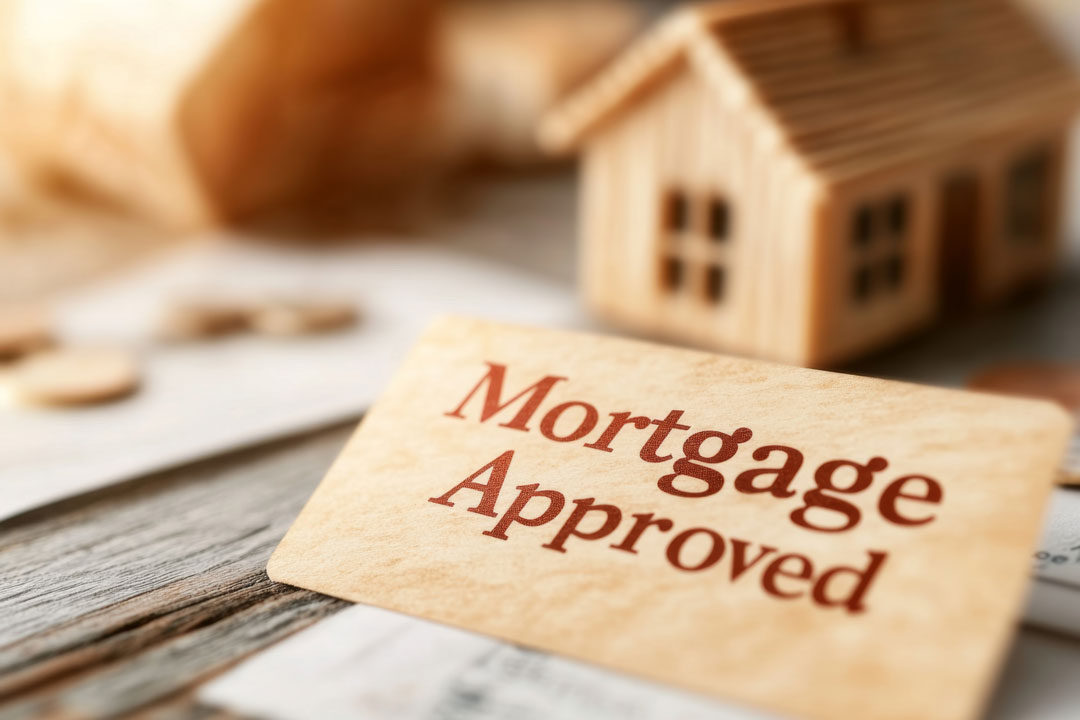Are you worried that bad credit might stop you from getting a mortgage? You’re not alone. Many assume a low credit score, missed payments, or even a past CCJ means they’ll never get on the property ladder—but that’s not true. Some mortgage lenders specialise in helping people with imperfect credit, and this guide will show you exactly how to find the right mortgage for your situation.
In this guide, we’ll break down:
✅ How bad credit affects mortgage approval
✅ The types of mortgages available for bad credit borrowers
✅ What lenders look for and how to improve your chances
✅ How much deposit and interest rates to expect
✅ Steps you can take to boost your credit and secure better deals
If you’re struggling with debt management plans, CCJs, defaults, or a low credit score, this guide will provide practical steps to help you secure a mortgage and get on the property ladder.
What is Bad Credit & How Does it Affect Mortgages?
Bad credit means you have a history of financial difficulties that make lenders less confident in your ability to repay a loan. However, not all bad credit situations are the same—some issues impact your mortgage options more than others.
Common Myths About Bad Credit Mortgages
There are many misconceptions about getting a mortgage with a poor credit file, which can make the process feel more daunting than it is. Below, we’ll debunk some of the most common myths and give you the facts.
1) “You need perfect credit to get a mortgage.”
❌ False – Many lenders specialise in bad credit mortgages, meaning you may still qualify even if you’ve missed payments, defaults, or CCJs. Specialist lenders focus on affordability, income stability, and deposit size rather than just your credit score.
2) “You’re blacklisted from getting a mortgage if you have bad credit.”
❌ False – There is no official “blacklist” for bad credit. While some high-street banks may decline applicants with poor credit, specialist mortgage lenders and brokers can find solutions for people with CCJs, IVAs, or even past bankruptcies.
3) “A bigger salary will guarantee mortgage approval.”
❌ False – While a high income can improve affordability, lenders assess your credit history, deposit size, and overall financial stability. If you have recently missed payments or high debts, a large salary won’t override those risks.
4) “If I’ve been rejected for a mortgage, I can’t apply again.”
❌ False – Being declined doesn’t mean you can never get a mortgage. Instead, it’s a sign that you may need to work on your credit score, reduce debt, or save for a larger deposit before reapplying. Some lenders are also more flexible than others, so exploring alternatives is key.
5) “All bad credit mortgages come with sky-high interest rates.”
❌ False – While having a poor credit history will often have higher interest rates on a mortgage they are not always unaffordable. The more you improve your financial situation (deposit size, credit score, income stability), the better rates you can secure.
6) “It’s better to wait until my bad credit disappears before applying.”
❌ Not always true – Credit issues remain on your file for up to six years, but some lenders ignore older defaults and CCJs, especially if they were settled over three years ago. You may qualify sooner than you think if you have a stable income and a solid deposit.
7) “You can’t get a joint mortgage if one applicant has bad credit.”
❌ False – Many lenders accept joint applications where one person has poor credit, but they may require the stronger applicant to contribute more financially or request a higher deposit.
The Truth About Bad Credit Mortgages
✅ Specialist lenders exist specifically for bad credit borrowers
✅ Your entire financial picture (income, deposit, and credit history) matters—not just your credit score
✅ Even with past credit issues, you can take steps to improve approval chances
If you’re worried about your mortgage options due to having a bad credit rating, working with a specialist mortgage broker can help you find the right lender and the best deal for your situation.
What Causes a Bad Credit Rating?
Lenders assess your financial history carefully before offering a mortgage. If you’ve struggled with money in the past, these are some of the most common reasons why your credit score might be lower than expected:
Bad credit doesn’t happen overnight—it’s usually the result of financial struggles, missed payments, or poor money management.
Mortgage lenders use your credit history to assess how well you’ve handled borrowing in the past, and negative marks can impact your ability to secure new credit, including a mortgage.
Some of the most common reasons for a poor credit file include:
- Missed or late payments – Forgetting to pay a bill or consistently paying late can damage your credit score.
- Defaults – If you fail to make repayments on a loan or credit agreement, the lender may register a default against you.
- County Court Judgments (CCJs) – If a lender takes legal action against unpaid debt, a CCJ may be issued, making it harder to borrow in the future.
- Debt management plans (DMPs), IVAs, or bankruptcy are formal agreements that can help people manage debt. However, they also signal financial distress to mortgage lenders.
- High credit utilisation – Using too much of your available credit (e.g., maxing out credit cards) can lower your score, even if you make mortgage repayments on time.
- Too many recent credit applications – Applying for multiple loans or credit cards quickly makes you appear desperate for credit, which is a red flag for lenders.
The severity and recency of these issues determine how much impact they have on your mortgage eligibility.
How Long Does Bad Credit Stay on Your Credit History File?
If you’ve had financial difficulties, it’s important to know that bad credit marks won’t stay on your file forever. Lenders can see your financial history with the main credit reference agencies over the past six years. Still, as time passes, negative records have less of an impact on your ability to get a mortgage.
Here’s how long different types of bad credit remain on your credit report:
- Missed payments—These can last up to 6 years, but their impact lessens over time, especially if payments are resumed. Mortgage Declined Due to Late Payment? Here’s what to do next
- Defaults—If a lender marks your account as defaulted, the information stays on your file for 6 years, even if you settle the debt. Learn more about Getting a Mortgage with a Default
- CCJs – A County Court Judgment remains visible for 6 years, but some lenders ignore it if it was satisfied over 3 years ago. Learn more about Getting a Mortgage with a CCJ
- Bankruptcy – This stays on your record for 6 years, but some lenders consider mortgage applications 2–3 years after discharge, notably if financial behaviour has improved.
If you’ve had credit issues, rebuilding your credit while waiting for these marks to expire can improve your chances of getting approved.

Can You Get a Mortgage with Bad Credit?
Yes, you can get a mortgage with a bad credit rating, but approval depends on several factors. While you may not qualify for a traditional high-street mortgage, many lenders cater specifically to bad credit applicants.
What Lenders Look for in Bad Credit Applicants
Lenders will assess:
- Credit history – Defaults, CCJs, late payments, and bankruptcy.
- Income stability – A steady job and provable income improve your chances.
- Deposit size – A larger deposit reduces lender risk.
- Affordability – Monthly income vs. expenses to ensure repayments are manageable.
Having bad credit does not automatically disqualify you, but your overall financial picture must show you can afford the mortgage repayments.
Can You Get a Joint Mortgage if One Applicant Has Bad Credit?
Yes, you can get a joint mortgage if one of the applicants has bad credit; however, the applicant with better credit will play a more significant role in securing approval. Many lenders allow joint mortgages where one person has bad credit, but additional criteria may apply.
- The lender averages both credit scores – Some may favour the higher score.
- The stronger applicant may need to earn more. Income levels must support the lender’s affordability criteria.
- A larger deposit may be required, reducing the lender’s risk.
- If the bad credit is recent, approval is more complicated.
- Some lenders specialise in mixed-credit applicants.
- Interest rates may be higher due to added risk.
Below are four ways that you can strengthen a joint mortgage application with a bad credit applicant:
- Improve the bad credit applicant’s credit score before applying.
- Save for a larger deposit (15–30%) to show financial stability.
- Reduce your overall debt-to-income ratio for both applicants.
- Consider a guarantor mortgage if needed.
A joint mortgage can still be approved, but choosing the right lender is crucial. Getting independent mortgage advice from an expert mortgage broker often makes sense.
How Credit Scores Work & What Score You Need for a Mortgage
A credit score is a numerical summary of your credit history, showing lenders how you’ve managed past debts. But what score do you actually need?
| Credit Agency | Poor | Fair | Good | Excellent |
|---|---|---|---|---|
| Experian | 0–560 | 561–720 | 721–880 | 881–999 |
| Equifax | 0–438 | 439–530 | 531–810 | 811–1000 |
| TransUnion | 0–550 | 551–565 | 566–604 | 605–710 |
There’s no set minimum score for a mortgage, but most high-street lenders prefer Fair to Good scores. Specialist lenders may accept lower scores if other factors (like deposit size) are strong.
What Score Do You Need?
Wondering how your credit score stacks up? Here’s a breakdown of what different scores mean for mortgage approval:
✔ High-street lenders prefer 680+ (Good to Excellent)
✔ Bad credit mortgage lenders may accept 550+ (Poor to Fair)
✔ If your score is below 500, you may need a guarantor or a larger deposit


How to Improve Your Credit Score Before Applying for a Mortgage
If you have bad credit, taking steps to improve your score before applying for a mortgage can increase your approval chances and help you secure better interest rates.
7 Steps to Improve Your Credit Score
- Register on the electoral roll – Lenders use this to verify your address.
- Keep credit utilisation below 30% – Avoid maxing out credit cards.
- Make all payments on time – Late mortgage repayments can drop your score significantly.
- Limit new credit applications – Multiple hard inquiries can hurt your score.
- Check your credit report for errors – Dispute any inaccuracies with credit reference agencies.
- Close unused credit accounts carefully – Having some available credit helps your score.
- Use a credit builder card – If your score is low, a credit-building card can help demonstrate responsible borrowing.
Learn How to Easily Use CheckMyFile to Boost Your Credit Score >
How Long Does It Take to Improve Your Credit?
The time required depends on your credit history:
- Fixing minor issues (credit utilisation, missed payments) – 3–6 months
- Recovering from defaults/CCJs – 12–24 months
- Improving a score after bankruptcy – At least 2–3 years
Improving your credit score before applying increases approval chances and can save you thousands in interest over the loan term.


Types of Bad Credit Mortgages
If you have bad credit, the type of mortgage you qualify for depends on your circumstances. Some lenders specialise in helping those with adverse credit history by offering tailored mortgage solutions.
1. Specialist Bad Credit Mortgages
Some lenders offer mortgages specifically for those with poor credit, meaning they may accept:
- CCJs (even if recent)
- Defaults
- Low credit scores
- Debt management plans
These mortgages typically require higher deposits and come with higher than-average interest rates, but they allow borrowers with bad credit to secure a mortgage.
2. Guarantor Mortgages
A guarantor mortgage is where a family member or close friend agrees to cover your mortgage repayments if you can’t.
Pros:
✔ Higher chance of approval
✔ Potentially lower interest rates
✔ No need for perfect credit
Cons:
❌ The guarantor takes on financial risk
❌ Not all lenders offer these mortgages
3. Adverse Credit Remortgages
If you already have a home but bad credit prevents you from getting a new deal, you may qualify for an adverse credit remortgage. This allows you to:
- Consolidate debt
- Secure a better interest rate
- Switch to a more flexible lender
4. Shared Ownership Mortgages for Bad Credit
Shared ownership mortgages allow you to buy part of a home and pay rent on the remaining share. This reduces the deposit required and makes it easier for bad credit applicants to qualify.


How Much Deposit Do You Need for a Bad Credit Mortgage?
The amount of deposit required depends on your credit history. A higher deposit reduces lender risk, which improves your approval chances and may secure better interest rates. Below is a general guide to what percentage of deposit is typically needed based on credit severity:
| Credit History | Typical Deposit Required |
|---|---|
| Good credit | 5-10% |
| Minor bad credit (late payments) | 10-15% |
| CCJs, defaults (over 3 years old) | 15-20% |
| Severe bad credit (recent CCJs, IVA, bankruptcy) | 20-30% |
A larger deposit is not always a must but it can improve your approval chances and help secure better mortgage rates.


How to Improve Your Chances of Mortgage Approval (And What to Do Next)
Getting a mortgage with bad credit is challenging, but taking the right steps now can significantly increase your chances of approval. By focusing on improving your credit, reducing debt, and working with the right lender, you can get closer to securing a mortgage.
1) Check & Repair Your Credit Report
Lenders rely on your credit report to assess risk, so reviewing and fixing any errors is an essential first step.
✔ Get a free credit report from Experian, Equifax, or TransUnion.
✔ Dispute any mistakes—incorrect information can lower your score.
✔ Pay off small debts—settling overdue accounts can quickly improve your profile.
2) Reduce Outstanding Debt
Lenders look at your debt-to-income ratio, so lowering existing debts can make your application more attractive.
✔ Pay down credit card balances—keeping balances under 30% of your limit improves your score.
✔ Avoid taking on new credit before applying—too many recent applications can signal financial distress.
✔ Settle old defaults or missed payments where possible.
3) Show Stable Income & Employment
Lenders want to see steady earnings that prove you can afford mortgage payments.
✔ If employed, staying in your job for at least 6–12 months strengthens your application.
✔ If self-employed, ensure you have at least two years of tax returns as proof of income.
✔ Avoid frequent job changes before applying, as this may be seen as instability.
4) Save for a Larger Deposit
A bigger deposit reduces lender risk and can help you secure better rates.
✔ Aim for at least 15–30% if you have poor credit.
✔ The more you save, the more lenders will consider your application.
5) Work With a Specialist Mortgage Broker
A bad credit mortgage broker can connect you with lenders that won’t be available directly to the public.
✔ Find lenders who work with bad credit applicants.
✔ Avoid unnecessary rejections by applying only to lenders likely to approve you.
✔ Get tailored advice on improving your financial situation before applying.
Your Next Move: Take Action Today
Now that you understand how to improve your mortgage approval chances, the next step is to put this plan into action.
✔ Step 1: Check your credit report and fix any errors.
✔ Step 2: Reduce debt where possible and avoid new applications.
✔ Step 3: Start saving for a bigger deposit.
✔ Step 4: Speak to a specialist mortgage broker who can match you with the right lender.
🚀 Want expert advice? Contact a specialist mortgage broker today and start your journey toward homeownership.
FAQs
What is the lowest credit score to get a mortgage?
There’s no official minimum credit score for mortgages in the UK, but most high-street lenders prefer above 600. Specialist lenders may consider applicants with scores as low as 500, provided they have a larger deposit and stable income.
Can I get a mortgage with a 450 credit score in the UK?
A 450 credit score is very low, making approval difficult with high-street banks. However, specialist bad credit lenders may consider applicants with a higher deposit (20%+), substantial income, and a history of improving their financial situation.
Can you get a mortgage with a 350 credit score?
A 350 credit score is extremely low; most lenders would decline the application. Your best chances lie with specialist lenders, but approval would require a large deposit, strong affordability, and evidence of financial improvement over time.
Can you get a mortgage with a CCJ?
Yes, some lenders accept applicants with CCJs, especially if they were settled over 3 years ago. A higher deposit (15-30%) and stable income improve approval chances. Mainstream lenders may decline, but specialist mortgage providers can help.
Can I get a mortgage with really bad credit?
Yes, but it depends on how recent and severe your bad credit is. Lenders consider CCJs, defaults, and missed payments, but having a higher deposit, steady income, and using a specialist mortgage broker improves your chances.
What is the easiest mortgage to get with bad credit?
The easiest mortgage to get with bad credit is usually with a specialist lender offering adverse credit mortgages. Guarantor mortgages and higher deposit options can also increase approval chances. Using a broker helps find the best deals.
Can I get a mortgage if I have really bad credit?
Yes, but you’ll likely need a specialist lender. If you have recent defaults, CCJs, or a low score, lenders may require a larger deposit (20-30%) and proof of stable income before considering your application.
What credit score is lowest for a mortgage?
While most lenders prefer 600+, some specialist lenders may approve applicants with scores as low as 500. However, these mortgages usually come with higher interest rates and stricter affordability checks.
Is it possible to get a mortgage with very bad credit?
Yes, very bad credit doesn’t always mean rejection, but it does mean fewer lender options. Improving your credit score, saving for a larger deposit, and showing financial stability increases approval chances. A broker can help find suitable lenders.
What credit score is too low to get a mortgage?
Any score below 400 is considered extremely low, making mortgage approval difficult. Some specialist lenders may accept 450+ scores, but you’ll need a strong financial profile, a high deposit, and proof of affordability.
Can I get a mortgage after bankruptcy?
Yes, but it’s more challenging. Most lenders require you to wait at least 2–3 years after discharge. A larger deposit (20–30%), stable income, and a clean credit record since bankruptcy improve your chances, especially with specialist lenders.


